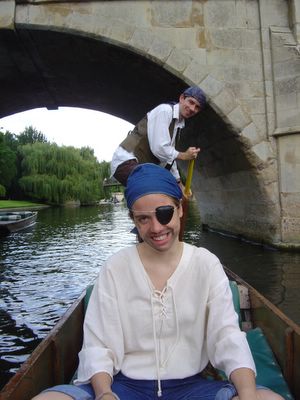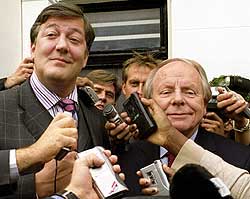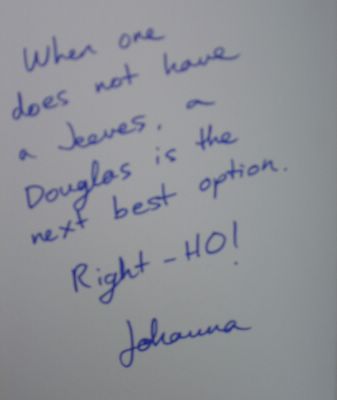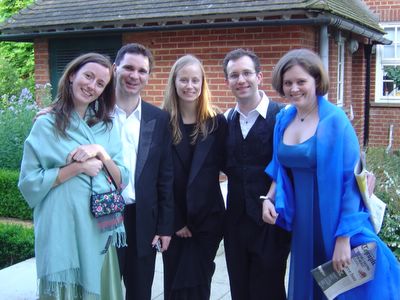I’ve been remiss, certainly: but the last two weeks has been a non-stop travel extravaganza. I’ve been in Switzerland, Oxford, London and the Peaks District in just under two weeks.
Executive summary (it's a long post)
Switzerland was cold, wet and less full of Swiss people than one might expect (admittedly, I was in Geneva, which is 50% foreigners).
I was in Oxford for a Friday afternoon, and found it pleasant enough that I may have to go back for a weekend, despite it being “The Other Place” and having backed the King in the Civil War.
Then a quick weekend in London with Peter and Jasmine, my tirelessly hospitable hosts in the metropolis, before heading off for three days of hostelling in the hilly bit of England.
Geneva
 Friday 16 September I set off for a weekend in Geneva, pretty much straight from presenting a paper at a conference in Cambridge. I was greeted at the airport by my host (an Australian buddy from the LLM who works in – wait for it – international law), and was swept off to drink wine in a funky little bar.
Friday 16 September I set off for a weekend in Geneva, pretty much straight from presenting a paper at a conference in Cambridge. I was greeted at the airport by my host (an Australian buddy from the LLM who works in – wait for it – international law), and was swept off to drink wine in a funky little bar.Not sure what I was expecting of Geneva. It felt like most of the place was erected out of concrete in the 1970s. Or maybe it was just that my host lived in the student quarter. Saturday we tootled round the Romanesque/Gothic confection of the Cathédral Saint Pierre, had lunch at a café and in the face of flaying wind went shopping. (Yes, I found bargains in Geneva). I then went to a fun party of ex-pat Anglophones in what would have seemed a big flat, had it not contained about 40 people.
Geneva is apparently dead on a Sunday, so we headed up to a wine festival in the little village of Roussin with some of my host’s Red Cross buddies. We drank wine, ate sausage and watched a gloriously amateurish parade of oompah-bands from villages in the district, followed by little floats principally stocked with sombre-faced Swiss kids in costume.
In a very me moment, I got lost on the way to the train station on Monday, and so wound up jumping in a cab (“l’aeroport, s’il vous plait!”) to prevent a repeat of my Edinburgh easyjet non-departure.
Oxford and London
 Friday 23rd I had a chance to have a discussion with a senior law of the sea academic in Oxford.
Friday 23rd I had a chance to have a discussion with a senior law of the sea academic in Oxford. Bizarrely, there is no train from Cambridge to Oxford (though there is, apparently, a line that was last used in the war). The options are to spend a freak-load of cash and make a two-hour train trip going into London transferring from Kings Cross to Paddington and heading out again; to spend even more and fly "Don Air"; or spending a fiver and getting an epic three-hour, stopping all villages, bus.
Poverty won over common sense, but at least it was a chance to catch up on some reading.
The interview went well, Oxford was pretty (when it stopped raining on me) and has some amazing vintage clothing stores, and I had an agreeable time drinking with friends of my sister’s.
 Then off on a bus to London Friday night. Saturday was a whirlwind social round catching up with my Australian lawyer friends for lunch or drinks, before a late train home to Cambridge so I could catch a visiting former flatmate for breakfast on Sunday.
Then off on a bus to London Friday night. Saturday was a whirlwind social round catching up with my Australian lawyer friends for lunch or drinks, before a late train home to Cambridge so I could catch a visiting former flatmate for breakfast on Sunday.Peaks District
Then, earlier this week, I was away Monday through Wednesday at a youth hostel in Edale, in the peaks district, for outdoor activities with 100 new scholars from my funding body.
Predictably, I managed to take a seat on the bus leaving Cambridge directly in front of an Australian lawyer, who’d been to the same law school, worked at the same firm and was at the Sydney Federal Court while I was at the Fed in Melbourne.
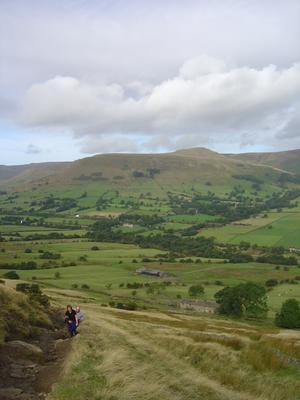 Unlike the uber-adventure-activity mistress Marissa, I opted for the soft (if occasionally damp) elective activities such as raft-building, canoeing and hill-walking over high ropes and caving. My height of adventure was a 40 minute walk through darkened cow fields to the pub (not without its risks!) and badly bruising one finger near the tip when I got it caught in a three-strand chain bridge and then fell off arse-backwards into the woodchips during a “team-building” exercise.
Unlike the uber-adventure-activity mistress Marissa, I opted for the soft (if occasionally damp) elective activities such as raft-building, canoeing and hill-walking over high ropes and caving. My height of adventure was a 40 minute walk through darkened cow fields to the pub (not without its risks!) and badly bruising one finger near the tip when I got it caught in a three-strand chain bridge and then fell off arse-backwards into the woodchips during a “team-building” exercise.Now I’m back in the ‘Bridge, panicking about my state of readiness for supervising undergraduates, and reflecting on the alarming fact that half the new Masters students in college appear to be 12.
Scariest recent moment ...
I held the gate at Wychfield open for a newly arriving couple. After some pleasantries, I introduced myself.
“I’m Doug,” I said, honestly enough.
“Do you have a blog called courting disaster?” asked he.
Ye gods.

